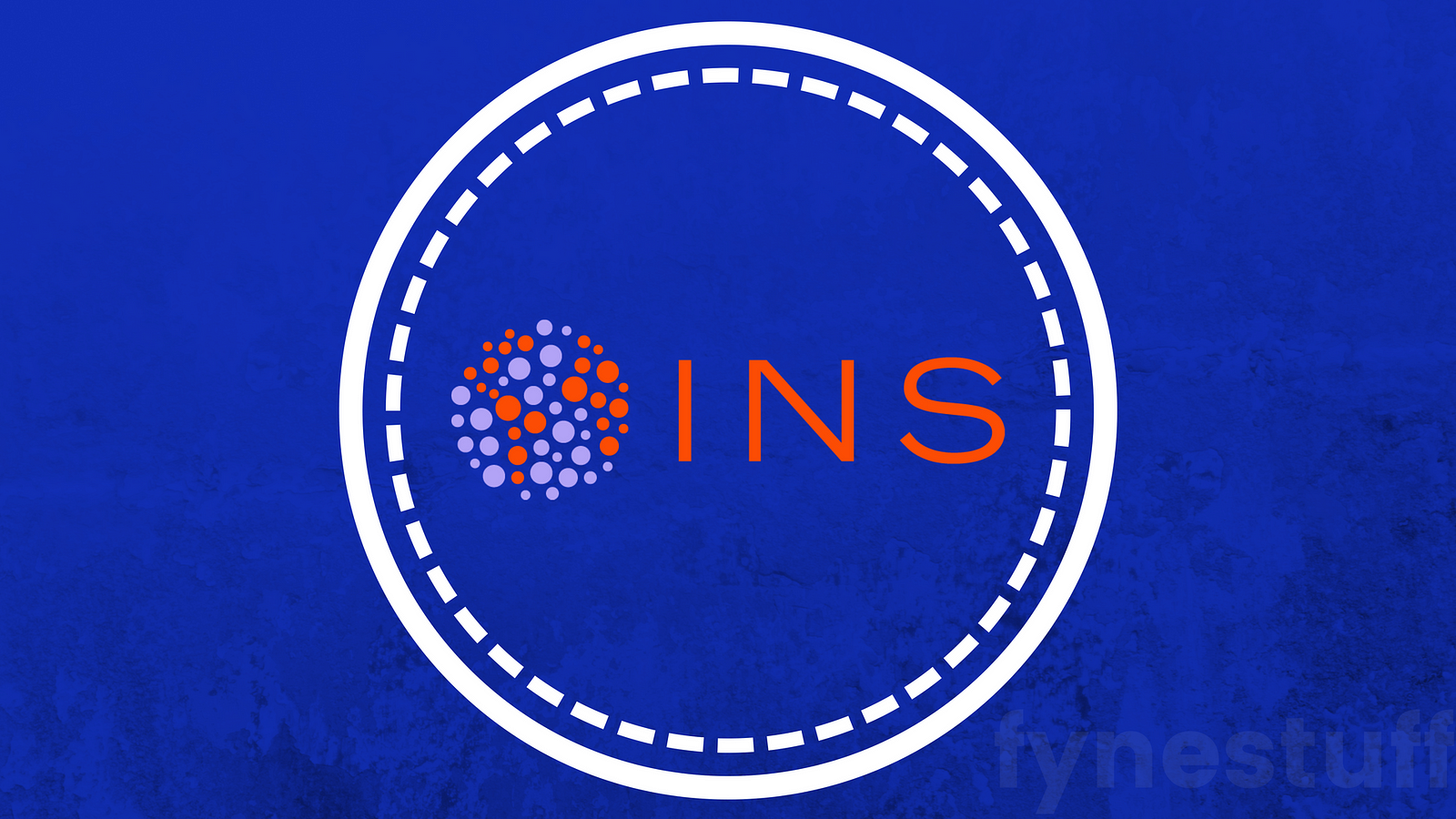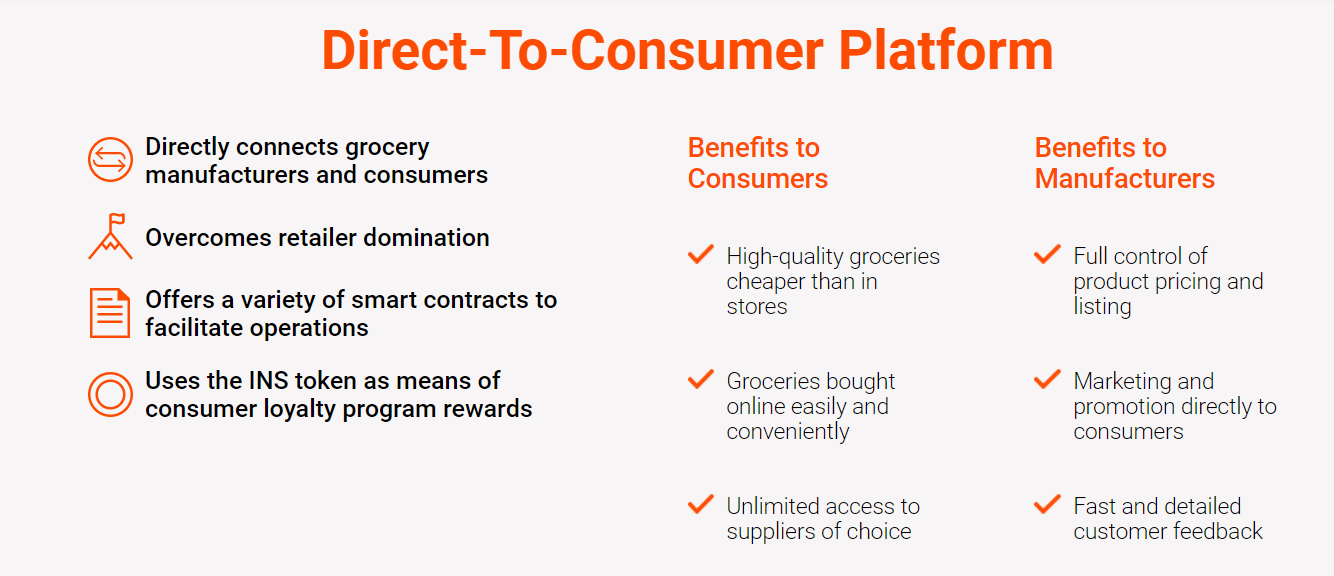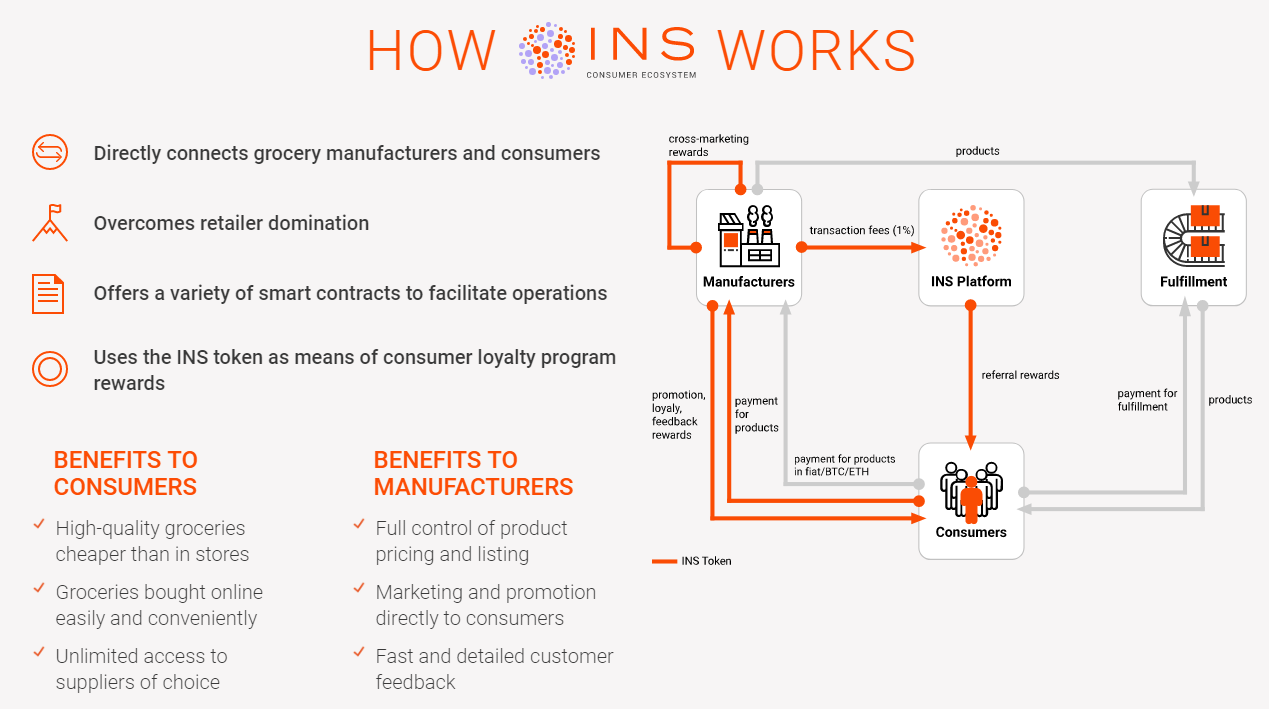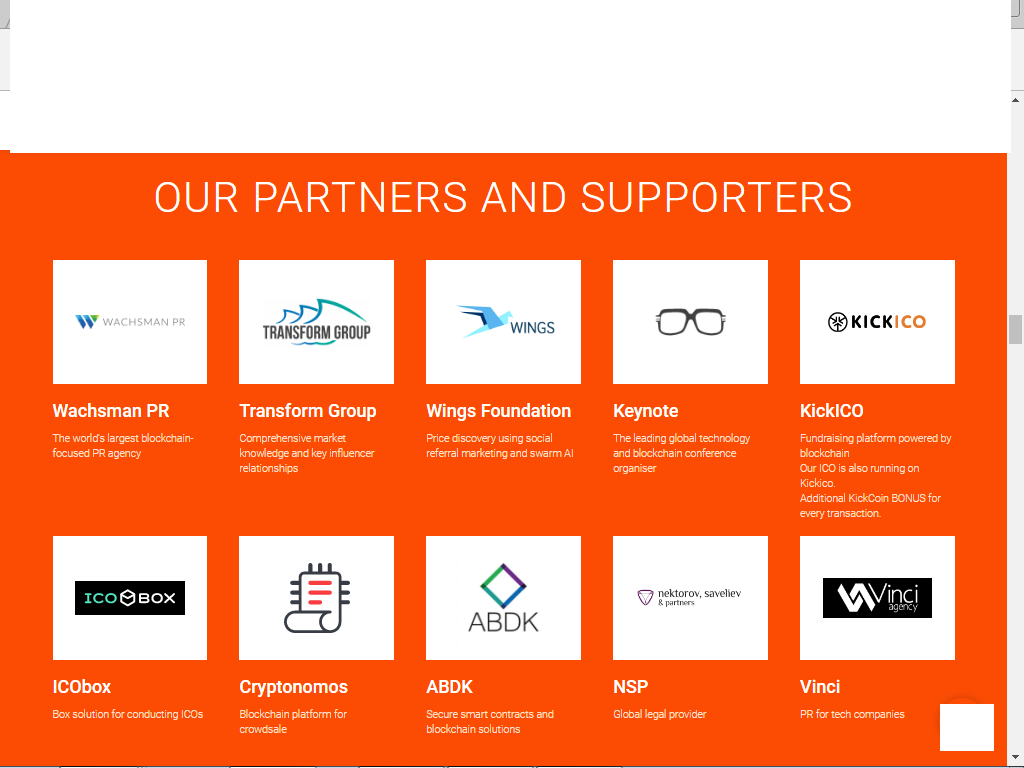
The INS Ecosystem is a global decentralized ecosystem that will allow consumers to purchase foodstuffs directly from producers comfortably and at a lower price. Passing retailers and wholesalers means a more personal and transparent shopping experience at a lower price. Manufacturers can join the order fulfillment process, publish their products for sale, engage in promotions and loyalty campaigns, and get customer feedback. INS also allows consumers to order the product and vote for new products and manufacturers.
At INS Platform, each manufacturer controls the price and product list. The platform collects all orders and sends requests to manufacturers who ship products to smart distribution centers. Professional pickers at the distribution center collect orders and give them to courier. Courier sends orders to customers.
The INS Platform will have a well-designed user interface for running ecosystems: consumer websites and applications, picker and messenger applications, fulfillment, and supplier web interface.
Background
The wholesale market, one of the world's largest consumer markets, is estimated at 88.5 trillion by 2020. It's reaching a digital turning point, with much of its growth coming from online. Online foodstuffs, being a target segment for INS, are expected to grow from $ 98 billion in 2015 to $ 290 billion by 2020, according to IDG forecasts.
Despite the tremendous growth, the wholesale market has some major problems:
The wholesale market is dominated by retailers. Retail chains capture a very high share of food revenues and have a profound effect on producers, causing profound impacts on consumers worldwide. Retailers dictate what foods are planted and how they are processed, packaged, priced and promoted. For example, in the United Kingdom, four retailers serve as a lean channel for 7,000 manufactures to sell their products to 25 million households, demonstrating how the presence of retailer abuse in the foodstuff industry is not only allowed to flourish but also flourish.
INS implements a decentralized ecosystem that allows consumers to save up to 30% of daily grocery purchases directly from food producers. Consumers will be able to decide which brands they want and the items they need. They call it "Consumption 2.0" because 21st century customers are tired of one-way street communications, where retailers push goods to those who maximize reseller profits - not what consumers really want. They also want consumers to have unhindered access to independent and local producers, including farmers who do not fit the retail supply chain or procurement requirements and can not get their goods on retail shelves.
Ineffective, expensive and outdated trade promotion. Wholesale producers spend up to 17% of their sales for trade promotions. Trade promotion consists of a category of factory cost increases directed to wholesale and retail distributors rather than to consumers. Manufacturers spend over $ 500 billion on trade promotions each year, and according to some reports, 66% of the spending results in negative returns and leads to higher wholesale prices.
INS will allow manufacturers to market their goods directly to consumers. No more expensive and inefficient trade promotions are made by retailers and wholesalers. INS will enable manufacturers to create specialized marketing programs to reward their customers directly. These programs run with smart contracts and are supported by INS tokens as a reward tool. This is similar to many airline mileage but more advanced, cheaper-to-run and personalized rewards programs thanks to smart contracts behind them. This is almost impossible before the blockchain and smart contract era.
Big or small, no manufacturer has enough power. Global constituents, such as Procter & Gamble, Nestle, and Unilever, play a role in industry and have greater negotiating power than small producers. However, these companies are not at all suitable for extensive control retailers to end customers throughout the supply chain. For example, Wal-Mart sales are about 5 times larger than its largest supplier, Procter & Gamble. Wal-Mart accounts for 16% of Procter & Gamble sales in 2016.
Retail buyer abuse goes beyond normal pressure. The explanation of this pressure is the abuse of buyer power. Such powers enable retailers to determine what will and will not be dispersed, and on what terms, such as source, quantity, quality, delivery schedule, packaging, return policy, and above all, price and payment conditions. Indeed, supermarket companies use an important bargain chip, a threat to stop selling one or more products.
Proof of abuse of retail power. The Competition Commission in the UK, for example, found that large retailers enjoy price gains that exceed cost differences. Additional departures from appropriate retail behavior include: delaying payments to producers outside the terms of the contract, and changing quantities or product quality specifications with notice less than three days, and without paying compensation to producers.
INS will help grocery manufacturers to cut retailers and wholesalers and directly sell and promote their products to consumers.
Waste in various areas of the supply chain. In distribution centers and on grocery store shelves, food is wasted. Every night, some perishable goods should be thrown away. According to a recent survey, 400 million pounds of food is served by supermarkets, but almost a third of it is wasted every year. Unfortunately, the retail system is currently designed to reduce out of stock rather than measuring and managing food waste. Therefore, managers optimize to ensure the food is left on the shelf.
INS will implement an effective "withdrawal" system to reduce inventories and inventories that will reduce food waste.

Platform / product
The ecosystem involves 4 components: platform, consumer, manufacturer and fulfillment (operator fulfillment center and worker, courier)
The platform is a decentralized market where manufacturers can register their products for sale, run promotional loyalty campaigns, and get customer feedback. Consumers can buy high quality products online at cheaper rates, which will be delivered to fulfillment centers before assembling orders and delivering to consumers. The use of blockchain and smart contracts will simplify supply chain management, enabling faster, cheaper and more secure transactions. Consumers can pay with fiat or cryptocurrency (BTC, ETC) at a lower cost (less than 3%) with limited access to prizes, while an INS token provides zero transaction fees and full access to prizes set by the manufacturer.
The INS token serves as a payment and incentive tool in a market where producers can reward consumers for making orders, sending feedback or other interactions.
Power
- Value creation to address real-world demands using blockchain technology - lower prices, higher convenience, better quality, more transparent and unique gift programs directly from manufacturers.
- Gained interest from 20 FMCG producers (Unilever and Mars).
- Supported by successful crypto-currency partners such as Bancor and Wing founders
Concerns
- This project is only a proof of concept without the actual product until the end of 2018 if everything goes according to plan.
- Adoption of manufacturers that mainly deal in large quantities instead of working in individual orders
- Fierce competition in the online wholesale industry with successful giants like Amazon Fresh or other local retailers focusing on online products and discounts
- This project may turn into a patented "pyramid scheme" that drives the product to buyers through an incentive program, thereby making it a discount online store running with a loyalty program while burning gas costs
Competition
Currently, INS has no direct competitors in this field using blockchain technology. However, they have to face challenging competition with traditional online retailers like Amazon Fresh.

How it Works?
INS The INS ecosystem consists of four main components:
- Marketplace: this is a visual center where registered products can be viewed and added to an online shopping cart.
- Consumers: they are people who want to buy groceries and similar items.
- Seller: these are farmers and farmers who want to sell their fresh produce.
- Fulfillment Operators: these people run an operations center, work behind the scenes, facilitate delivery, etc.
to participate and become a member of the INS ecosystem, users are required to register to the platform. The registration process involves creating a custom profile and also a digital wallet. This wallet will be used to store original INS tokens as well as to secure all data recorded in the decentralized ledger.
Level Blockchain
Smart contract.
Smart contracts provide tools and frameworks for creating a new generation of markets where supply and demand sides can engage in reliable trading transactions, in accordance with business rules, without the need for a central brokerage entity. As a result, the same way that online markets bother many traditional brick and mortar businesses, blockchains and smart contracts will spawn a new kind of peer-to-peer market that will disrupt the current market convenience.
INS will provide a number of intelligent contract templates that will be used to facilitate the sales mechanism. The peer-to-peer structure is well suited for the decentralized nature of the INS ecosystem and has the benefit of handing power back to the people who participate in the ecosystem.
Payment.
The current e-commerce payment process requires more than 10 different steps to complete the transaction and up to 15 separate charges to pay for gateway payments, thus making transaction fees ranging from 2% to 6%, shortcut shortcuts with the use of blockchain. Blockchain is the perfect tool for e-commerce to be more efficient and more reliable. The process of payment through blockchain has significantly greater potential for high-speed transactions and low prices, let alone all possible ways smart contracts can improve both ecommerce and payment. The tokenized token will provide a complete token-based system, similar to the money back where tokens are sent and exchanged at different times and for different reasons, based on predefined rules and events.
Supply chain management.
E-commerce companies must manage complex supply chains from manufacturers, third-party vendors, operators, and logistics providers. Blockchain transactions, containing order details and negotiated costs (in the form of smart contracts) will be used to retrieve documents, shipping and possible re-occurrences, and encourage financial settlement with fewer opportunities for disputes. The public-private nature of the blockchain record means that each party can make the data visible to others. All parties have visibility in the transaction and no special interface should be negotiated between partners (only to / from blockchain).
Blockchain is a recording system for all transactions. It not only records transactions, but also encourages the entire process. This will reduce the time delay, increase the cost and human error that disrupt the current transaction, automate inventory control and simplify the fulfillment process, but errors to some extent are impossible due to the digital grocery product, recording their path must be blockchain post FAKTUM.
Storage.
A decentralized file storage network (with options from IPFS to Storj) is used to maintain the latest databases of products listed by the manufacturer. Consumers can apply sorting and filters to choose what they want to buy. Manufacturers can distribute ownership applications derived from reference implementations, where they can choose custom sorting methods and filters for products.
Participants
Manufacturer.
Manufacturers are companies or individuals in the business of fresh produce, groceries, and household goods that can be consumed. From local farmers to large multinational companies, such as Procter & Gamble, Unilever, Coca-Cola, etc.
The producer's role includes:
- Publish products.
- Submit products ordered by the consumer to the fulfillment center.
- Promote INS ecosystems by bringing in traffic through the promotion of derived apps.
Incentives for manufacturers include:
- Publish products to make them easily available for ordering.
- Give a fair price on their products and compete openly with other manufacturers.
- Customize the official apps of INS according to their own brand, promote to consumers to increase repeated use and earn cross-marketing rewards.
- Serve in a trusted way to maintain a high ranking score and attract more customers.
- Give attractive promotional and fidelity gifts to get and keep consumers.
- Get direct customer feedback.
Consumer.
Consumers are individuals or companies who want to buy high quality online shopping at a lower price. Orders can be placed through INS sites, INS applications or factory-specific applications from app reference implementations.
Consumer roles include:
- Find products listed by the manufacturer, create an order, and pay for them.
- Participate in feedback requests.
- Accept promotional rewards, loyalty, referrals, and feedback.
- Ordering everyday items and consumer products is cheaper than in retail stores.
- Get orders delivered to your doorstep without spending chalk for offline shopping.
- Leave feedback to influence producers.
- Get a variety of awards.
- ICO: December 4 - December 25, 2017
- ICO Price: 1 ETH = 300 INS token
- Tokens for sale: 30,000,000 (60% of total supply)
- Soft cap: 20,000 ETH
- Hard cap: 60,000 ETH
- Vesting period for team: 2 years
- Token Symbol: INS
- Maximum token image: 50,000,000
- Mining algorithm: the token is not mined but runs on the Ethereum network.
- Standard token: ERC20
- Type of cryptocurrency: token

.png)
Team and Team Experience

Advisor


Conclusion
In general, the project creates value for consumers to address important issues in the grocery industry, paving the way for mainstream blockchain technology in real-life business. Supported by a strong team with experience and connections in the field to develop partnerships with key players is an important point. However, one has to be cautious with some concerns especially the utility of INS coins, reflecting the great value stated, which can turn out to be successful when mass adoption occurs. At the time of issuance the USD value of the seal is approximately $ 45,000,000 which is currently a medium fund raiser. This combined with a limited token inventory leaves room for future price appreciation, therefore, depending on the roadmap and progress of the project to gain partnership with key industry partners.
FOR MORE INFORMATION
- Website: https://ins.world/
- Whitepaper: https://ins.world/INS-ICO-Whitepaper.pdf
- ANN: https://bitcointalk.org/index.php?topic=2208591.0
- Telegram: https://t.me/ins_ecosystem
- Twitter: https://twitter.com/ins_ecosystem
- Facebook: https://web.facebook.com/ins.ecosystem/?_rdc=1&_rdr
- Reddit: https://www.reddit.com/r/INS_Ecosystem
Author: lifting
Bitcointalk Profile: https://bitcointalk.org/index.php?action=profile;u=1785676
Eth: 0x14DAEA80662fc2726c6348989bd2eDe94C4a1d79
No comments:
Post a Comment